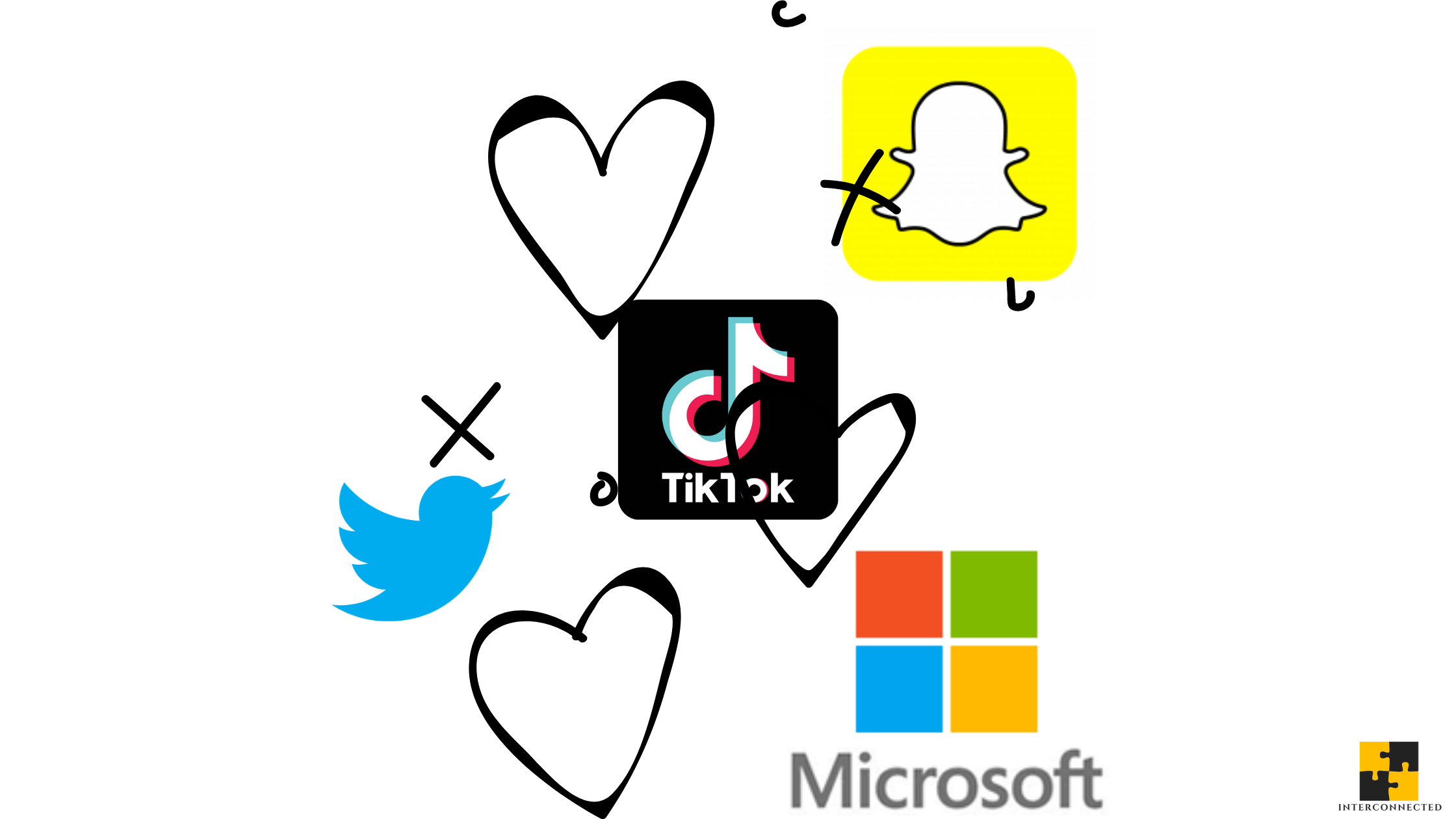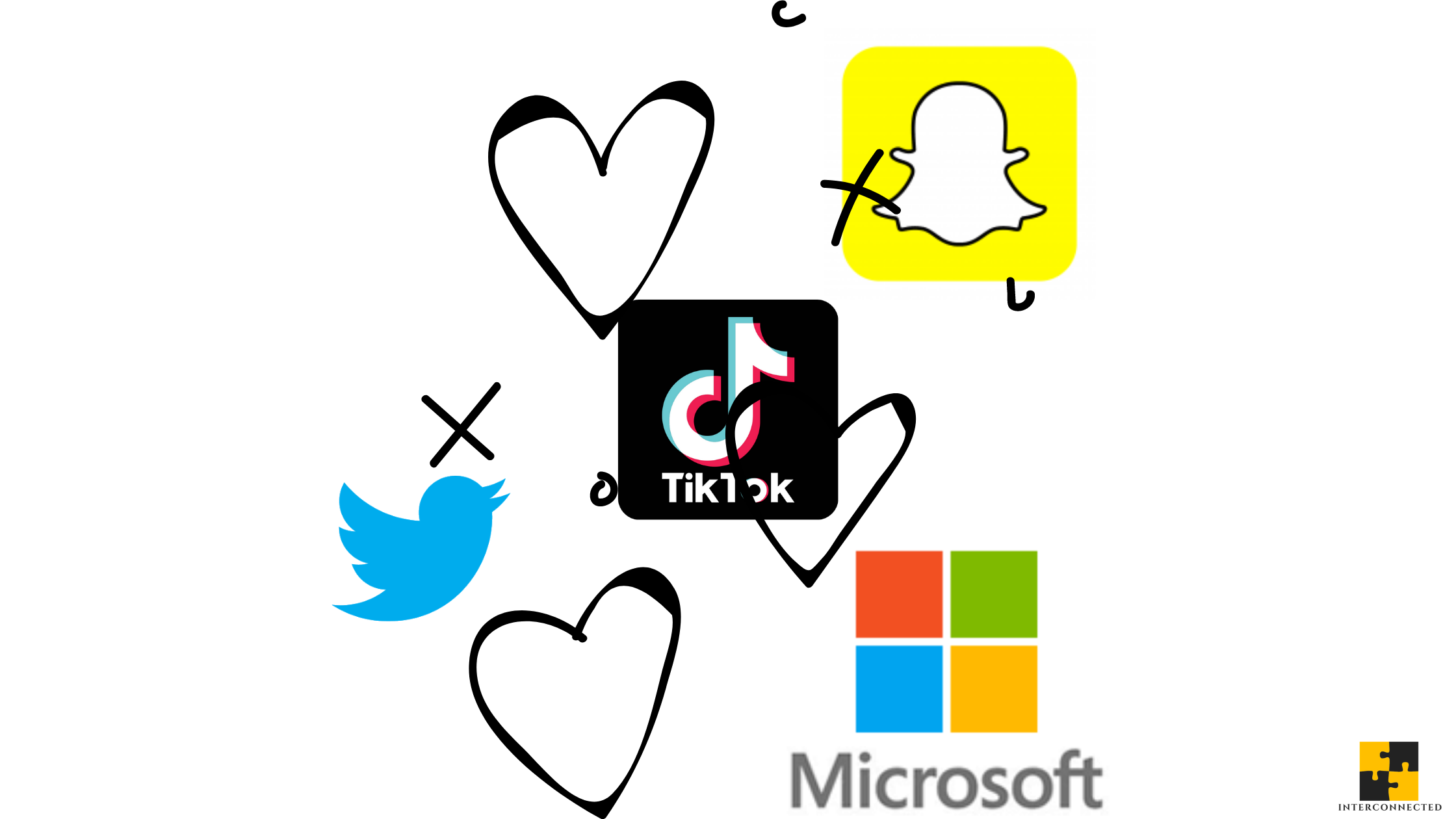This issue covers the period between August 9 - August 16, 2020 with six news stories – three from English language sources, three from Chinese language sources. Disclaimer: all translated article titles are done by me, not official translations from the media outlets.
“China hires over 100 TSMC engineers in push for chip leadership” (English Source: Nikkei Asian Review)
My Thoughts: Back in May, when the newest round of US sanctions against Huawei was announced (the one where all chips made or designed by US technologies must be approved), there was a lot of fear and paranoia about an impending war or military takeover of Taiwan by Mainland China. The fear, voiced by some fairly influential people in tech like Steve Blank, stems from the fact that Taiwan is home to the world’s most advanced chip foundry, TSMC, thus there’s motivation to do so, both for the chip making technology and to achieve a much longer-standing territorial objective to “reunify”. As we’ve seen in this news though, money is a much easier method than military force if the goal is to acquire technology. The two Chinese chip foundries mentioned, QXIC and Hongxin, are paying 2 to 2.5x more to lure TSMC engineers back to the “motherland”. As I’ve explained in a previous deep dive, “RISC-V, China, Nightingales”, there are many intricate ties between Chinese foundries and TSMC; Hongxin’s current CEO, Chiang Shang-Yi, was TSMC’s very first CTO. Both QXIC and Hongxin (or HSMC) have the backing of local governments, but are relatively small players even in China. The national champion is SMIC, which has billions of dollars in funding and recently listed on Shanghai’s STAR market.

“Trump Orders ByteDance to Divest TikTok, Destroy US User Data in 90 Days” (English Source: PingWest)
My Thoughts: This is a late breaking news with much legal ambiguity and room for interpretation still. Friday is usually the day when an organization releases news that it does not want lots of coverage on, the proverbial “Take Out the Trash Day”. Thus, releasing this finalized CFIUS order against TikTok on a Friday night is curious. Then again, news cycles have been 24-hours non-stop for many years now, so the trash-taking practice is perhaps outdated. (Side note: kudos to all the reporters who sacrificed their Friday nights to cover this story.) The most noteworthy portion of this CFIUS edict is that it’s ordering ByteDance to wipe out all American user data collected by TikTok or Musical.ly. Myself and others have analyzed TikTok the product at length; it’s primarily algorithm-driven, less social-driven. The fuel of any algorithm-driven product is its users’ data. Putting the practicality of this order aside for now (deleting data from all of TikTok’s servers in both the US and Singapore would be quite a technical feat), TikTok would be essentially worthless without its data. What price would Microsoft pay to buy it then? Would this change also make both Twitter and Snap more credible acquirers? Currently, TikTok’s rumored price is around $30 billion, while Twitter and Snap’s market caps as of Friday’s closing are $29.7 billion and $31.7 billion respectively. Snap CEO Evan Spiegel’s admiration for China’s best of breed tech products is well-documented and, at least in part, caused Snap’s infamous product redesign fail in 2018. Tencent has also been a key investor of Snap for many years. Many interconnections indeed.
“Chinese Netflix-style service iQiyi tanks by 18% after U.S. regulators investigate fraud allegations” (English Source: CNBC)
My Thoughts: This SEC investigation is instigated once again by Wolfpack Research, whose work famously took down Luckin Coffee earlier this year. iQiyi was originally born out of Baidu, and Baidu is still a majority shareholder of iQiyi. Baidu has not been known for its ethical business practices, with its fraudulent ad business in healthcare being the most infamous example. If and how this investigation will add fuel to American legislators to ramp up scrutiny on Chinese companies publicly-listed in New York is important to watch, especially as a counter narrative to the slew of new companies that IPO’ed on Wall Street in a redhot capital market. Some recent examples include: Dada, Blue, Li Auto, Agora, and now Beke (see more below).
“ByteDance’s ambitions are all hidden in its job postings” (Chinese Source: DT Finance)
My thoughts: This is a fascinating piece that extrapolates just how ambitious ByteDance is as a company by looking at what kind of talent it's hiring for. The observation that close to 40% of its openings are for R&D engineering positions is standard for a high-growth tech company. What’s more interesting is that beyond its successful series of algorithm-driven apps, ByteDance is actively investing, acquiring, and developing products in the B2B enterprise space, as well as education. I highlighted its acquisition of CaiCloud two weeks ago, as an important step towards developing more robust infrastructure technology offerings in the cloud. Looks like ByteDance has plans to eventually build a public cloud, similar to AWS, Azure, Alibaba Cloud, which would be an impressive accomplishment.
(This chart breaks down all of ByteDance’s investments by industry category from 2014-2020. The top three are: entertainment & media, enterprise software, education.)
“95% of Chinese users are willing to give up iPhone for WeChat” (Chinese Source: Weibo)
My thoughts: Since this is a “poll” done on Weibo, take it with a giant grain of salt, just as you would with any survey done on Twitter or Facebook. However, the general sentiment reflected in this “95%” is quite clear. Greater China accounts for roughly 10% of Apple’s revenue -- significant though decreasing from close to 20% just a couple of years ago (see chart below). Apple has also been mentioned frequently as a target of retaliation if the Trump administration does go ahead with an outright ban on WeChat and TikTok. This retaliation may not be even necessary, if the consumers express their opinions with their dollars (or RMB).
“Beke lands on the NASDAQ; How did it succeed in real estate with Alibaba and JD.com failed?” (Chinese Source: 36Kr)
My thoughts: Beke’s IPO this week on the NASDAQ is a fairly sizable one -- more than $2 billion USD. This piece does a good job of analyzing the company’s history and evolution from a typical real estate agency with a website, to a full-on platform that both provides technology (e.g. VR house viewing) and backend services (e.g. listing aggregation) for other real estate agents while also facilitating its own transactions. This platform strategy is similar to Amazon and JD.com’s “frenemy” approach, working with 3rd-party merchants while selling its own competing products directly to consumers at the same time. I hesitate to draw direct analogies between Chinese and American tech companies, because the Chinese ones tend to look more like conglomerates, while American ones tend to stay in clearer lanes. At the moment, Beke looks closest to a mashup of Redfin, Zillow, and...something else. Beke’s rise also coincides with China’s big and growing real estate market in the last two decades, which appears to be a bubble that just doesn’t pop.
If you like what you've read, please SUBSCRIBE to the Interconnected email list. To read previous posts, please check out the Popular Topics section and the Interconnected Weekly archive. New content will be delivered to your inbox (twice per week). Follow and interact with me on: Twitter, LinkedIn.
本期《每周互联》总结概括的时间段是:2020年8月9至16日,包括本作者挑选的六条新闻:三条原文是英文,三条原文是中文。声明:所有翻译的文章标题都是我做的翻译,不是官方翻译。
“中国雇用100多名台积电工程师,推动芯片制造领先地位”(英文来源: Nikkei Asian Review)
我的想法: 早在今年5月,当美国宣布对华为的最新一轮制裁(美国技术公司制造或设计的所有芯片都必须获得批准的那一轮制裁)时,许多人害怕大陆会准备攻打台湾。一些还蛮有影响力的科技界人士如 Steve Blank 公开开始表达这种担忧,原由既是台湾有台积电,因此有动机这么做,既有利于拿到控制最先进的芯片制造技术,也可以实现“统一”这个长期目标。但正如这条新闻中所报道的,如果目标是获得技术,金钱要比军事力量好用的多。所提到的两家中国芯片铸造厂,泉芯(QXIC)和弘芯(HSMC),正在以2至2.5倍的报酬来吸引台积电工程师“回归祖国”。正如我在之前的一篇深度分析 “RISC-V,中国,夜莺” 中所提到的,中国铸造厂和台积电之间有着许多错综复杂的联系;弘芯CEO蒋尚义就是台积电的第一位CTO。泉芯和弘芯都有地方政府的支持,但即使在中国,它们也属于小玩家。大头还是中芯国际,拥有数十亿美元的资金,最近刚在科创板上市。

“特朗普命令ByteDance剥离TikTok,90天内摧毁美国用户数据”(英文来源: 品玩)
我的想法:这是条突发新闻,法律上有很多模糊之处和揣测的余地。周五通常是一个组织发布不希望有太多报道的新闻的日子,俗话说“清理垃圾日”(Take out the trash day)。因此,在周五晚上发布CFIUS针对TikTok的最终命令还是有点奇怪的。当然24小时不间断的新闻报道媒体环境也已经有些年了,所以“清理垃圾”的做法也许已经过时了。(旁注:向所有牺牲了周五晚上报道这条新闻的记者们表示感谢。)CFIUS法令中最值得注意的部分是命令ByteDance彻底销毁从TikTok或Muscal.ly收集的所有美国用户数据。我和其他人都详细分析过TikTok的产品;它是主要是算法驱动,较少是社交驱动。任何算法驱动的产品的燃料都是用户数据。暂且不考虑这个命令怎样落实(从美国和新加坡的服务器上删除所有数据还是个不小的项目),如果TikTok没有了数据,它将基本上一文不值。那么微软会花多少钱买它呢?这一变化是否也会让Twitter和Snap成为更有可能的收购对象呢?目前,TikTok的传闻价格在300亿美元左右,而Twitter和Snap截至周五收盘的市值分别为297亿美元和317亿美元。Snap CEO Evan Spiegel对中国一流科技产品的钦佩有据可查,也至少在一定程度上导致了Snap在2018年臭名昭著的产品设计变动的失败。腾讯多年来也一直是Snap的主要投资者。相互联系还真不少。
“美国监管机构调查欺诈,爱奇艺股价下跌18%”(英文来源: CNBC)
我的想法: 美国证券交易委员会的这项调查又一次是因为Wolfpack Research。今年早些时候,Wolfpack Research的调查成果就导致了瑞幸咖啡臭名远扬。爱奇艺最先出自于百度,目前百度仍是爱奇艺的大股东。百度也并不以其道德商业行为著称,在医疗保健领域的欺诈广告业务是最臭名昭著的例子。这项调查是否以及如何会帮助美国立法人士加大对在美上市的中国公司的审查力度,值得关注。同时也会是目前在火热的资本市场上继续在华尔街上市的趋势的一个反调。最近在美上市的一些例子包括:达达,Blued,理想汽车,声网和这周的贝壳(见下文)。
“字节跳动的野心,都藏在招聘启事里了” (中文来源: DT财经)
我的想法: 这篇文章很有意思,通过看字节跳动的招聘来推断公司未来的弘大野心。近40%的招聘需求是研发工程职位,这对一家高速增长的科技公司来说并不新奇。更值得注意的是,除了字节已经成功一系列算法驱动的app以外,还在积极投资、收购和开发B2B企业服务行业的产品,以及教育领域。两周前,我提到了字节收购才云一事,这是朝着在云端开发更好的基础设施产品迈出的重要一步。看来字节最终会搭建一套公有云的,类似于AWS、Azure、阿里云。如果成功,将是个显赫的成就。
“#95%中国用户愿为微信放弃iPhone#” (中文来源: 微博)
我的想法: 这是微博上的“民意调查”,所以千万别都信,就像不该完全相信在Twitter或Facebook上的类似调查一样。不过,这“95%”所反映的大众情绪还是相当明确的。大中华区约占苹果所有营收的10%,虽然从几年前的近20%开始下降(见下图)但还是不少的。如果特朗普政府真的全面禁止微信和TikTok,舆论界经常提到苹果做为可能被中国政府报复的目标。如果消费者用美元(或人民币)直接表达自己的态度的话,这种报复可能就没什么必要了。
“贝壳登陆纳斯达克,为什么阿里、京东都搞不定的房产市场,它能做到上市?” (中文来源: 36氪)
我的想法: 贝壳本周在纳斯达克上市的规模相当可观,超过20亿美元。这篇文章很好地分析了贝壳的历史和发展,从一个有网站的房产中介公司,发展成为一个既为其他经纪提供技术(如VR看房)和后端服务(如真房源楼盘字典)的全套平台,同时也自身买卖交易。这种平台策略与Amazon和京东的很像,既与第三方商家合作,同时也向消费者直销自己的产品。我一般不愿把中国和美国的科技公司直接做比较,因为中国科技公司看起来更像复杂的大集团,而美国科技公司则倾向于走更清晰的赛道。目前,贝壳看起来最接近Redfin加Zillow加…其他一些东西的混搭。贝壳的崛起也与过去20年中国房地产市场的庞大和不断增长相吻合,同时也似乎是个“爆不了的泡沫”。
如果您喜欢所读的内容,请用email订阅加入“互联”。要想读以前的文章,请查阅“热门话题”和《每周互联》的档案。每周两次,新的文章将会直接送达您的邮箱。请在Twitter、LinkedIn上给个follow,与我交流互动!
